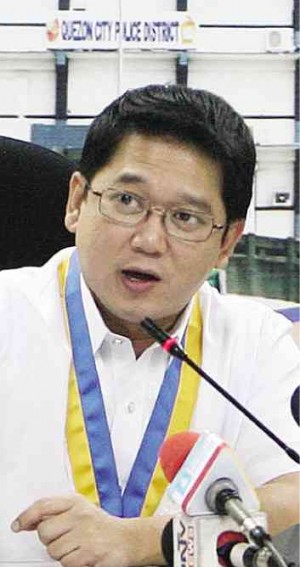SC stops QC housing tax, trash fee; Bautista readies lawyers
MANILA, Philippines—Quezon City residents can heave a sigh of relief after the Supreme Court put a stop for now to the collection of annual garbage fees and socialized housing taxes.
The temporary restraining order (TRO) issued by the high court’s Third Division on Wednesday is “effective immediately and continuing until further orders from the court,” according to the notice issued by clerk of court Lucita Abjelina Soriano.
At the same time, both parties involved in the case were asked to comment within 10 days after getting the court notice.
Reached for comment, Quezon City Mayor Herbert Bautista on Thursday told the Inquirer that a legal team had already been formed to respond to the petition for a TRO filed by a resident, Jose Ferrer Jr., on Jan. 17.
Bautista said that although they have yet to receive a copy of the high court’s order, he has asked a group of lawyers to defend the two city ordinances authorizing the collection of garbage fees and socialized housing taxes.
Article continues after this advertisementP4.7M collected
Article continues after this advertisementSo far, the Quezon City government has collected over P4.7 million—P4.152 million in January and P583,450 this month—since the trash tax ordinance was implemented starting this year.
With the TRO in effect, the money will temporarily be held in trust by the treasurer’s office. Should the high tribunal declare the garbage fee ordinance illegal, the fund will be credited to the account of taxpayers for possible conversion into tax credits or advance payments.
Earlier, Ferrer asked the high court to declare as illegal and unconstitutional the collection of garbage fees and socialized housing taxes from residents, describing these as “unnecessary impositions for basic services which the local government is required to provide.”
Named as respondents in his petition were Bautista, members of the city council, the city treasurer and city assessor.
Bautista, meanwhile, defended the collection of socialized housing taxes, saying that the number of informal settler families (ISFs) in Quezon City has gone down to a little over 190,000.
“We already have several in-city housing projects and are continuously working with the National Housing Authority and nongovernment organizations for the relocation of ISFs [to] nearby provinces of Metro Manila,” he said.
Under the 2011 ordinance, a 0.5-percent annual realty tax is imposed on a property with a value of over P100,000, with the proceeds to go to the construction of houses for the city’s squatters.
6 ‘Bistekvilles’
According to Bautista, the city now has two existing socialized housing projects: Bistekville I in Barangay (village) Payatas and Bistekville II in Barangay Kaligayahan, Novaliches, which were completed in January 2013.
On the other hand, four more are in various stages of development: Bistekville III in Barangay Escopa, Project 4; Bistekville IV in Barangay Culiat; Bistekville V in Barangay Payatas; and Bistekville VI in Barangay North Fairview.
“Our projection is [that] we can further trim the number of ISFs to 150,000 in two years,” Bautista said.
In his petition, Ferrer had told the high court that the socialized housing tax was a form of punishment for real property owners owing to the city government’s failure to protect their lands from informal settlers.
He described it as a “class legislation” favoring informal settlers over “law-abiding real property owners who pay income tax and realty tax.”
The garbage fee, on the other hand, amounted to “double taxation” because trash collection was a primary function and duty of the city government which should be funded through taxes and its internal revenue allotment share, Ferrer added.
